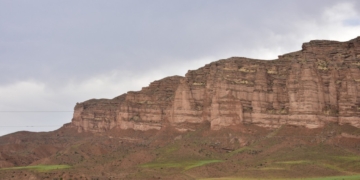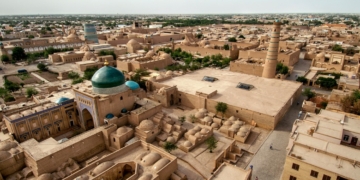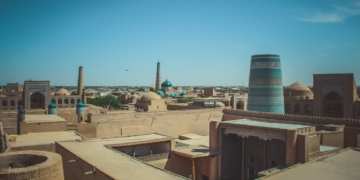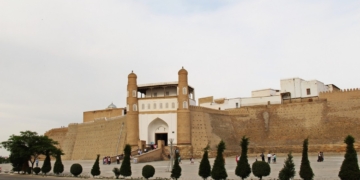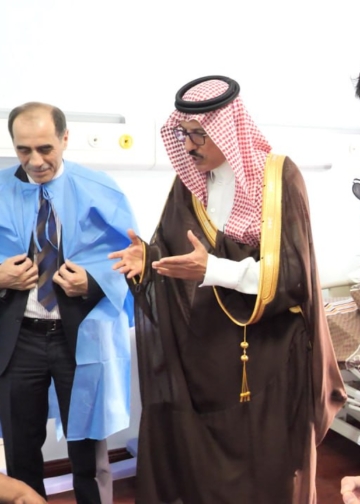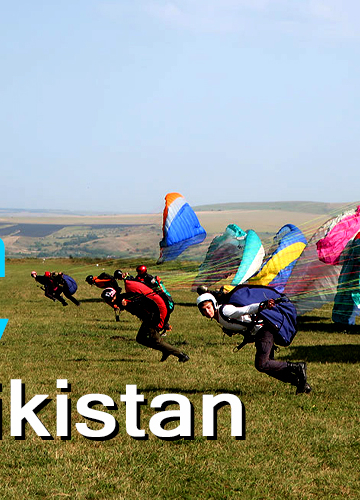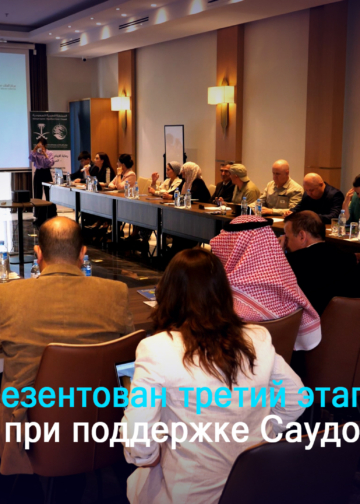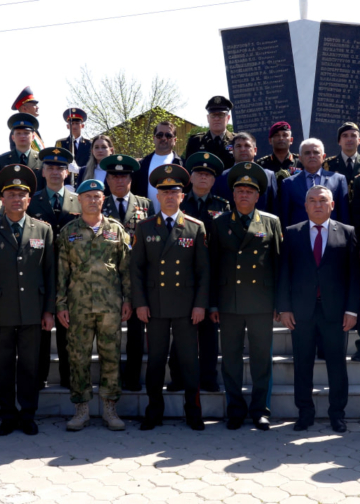id: 128702
date: 11/5/2007 13:15
refid: 07DUSHANBE1589
origin: Embassy Dushanbe
classification: CONFIDENTIAL
destination: 07DUSHANBE1584
header:
VZCZCXRO8019
PP RUEHDBU
DE RUEHDBU #1589 3091315
ZNY CCCCC ZZH
P 051315Z NOV 07
FM AMEMBASSY DUSHANBE
TO RUEHC/SECSTATE WASHDC PRIORITY 1282
INFO RUEAIIA/CIA WASHDC
RUCNCIS/CIS COLLECTIVE
RUEHML/AMEMBASSY MANILA PRIORITY 0180
RHEHAAA/NSC WASHINGTON DC
RUCPDOC/USDOC WASHDC PRIORITY 0201
RUEHDBU/AMEMBASSY DUSHANBE 3189
—————— header ends —————-
C O N F I D E N T I A L DUSHANBE 001589
SIPDIS
SIPDIS
STATE FOR SCA/CEN
E.O. 12958: DECL: 11/5/2017
TAGS: EFIN, EAGR, ECON, PGOV, PREL, EINV, ETRD, TI
SUBJECT: WEEKEND UPDATE ON TAJIK LIQUIDITY CRISIS
REF: DUSHANBE 1584
CLASSIFIED BY: David Froman, Economic Officer, Pol/Econ, DOS.
REASON: 1.4 (c)
1. (U) This report provides an
update to reftel concerning the
cotton sector finance crisis in Tajikistan.
President Rahmon Reacts to Donor Demands
——————————————— ————
2. (C) According to Annette Dixon of the World Bank and Juan
Miranda of the Asian Development Bank, President Rahmon «hit the
roof» when the banks told him they would not help bail out the
Tajik cotton sector unless Tajikistan requests, and the
International Monetary Fund delivers, a new policy instrument
(reftel).
3. (C) Both Miranda and Shigeo Katsu of the World Bank met with
Rahmon on Saturday on the margins of the conference on Central
Asian Regional Economic Cooperation.
Dixon and Miranda told
Ambassador Jacobson that at first Rahmon tried the blame game,
accusing the international finance banks of «doing nothing for
three years.» Then he
apparently calmed down and asked for
another meeting Sunday. Miranda
says that Rahmon now knows he
is going to have to request the instrument — the International
Monetary Fund’s Poverty Reduction and Growth Facility program —
unless he can get the money from someone else with no conditions.
4. (C) Both the World Bank and Asian Development Bank
representatives asked us to support the idea of a new
International Monetary Fund program with both the Tajiks and the
Fund, who are going to have to move more quickly than usual if
this is to work. Miranda says the
International Monetary Fund
is embarrassed because the Asian Development Bank uncovered the
secret Tajik loan guarantees — not the Fund itself.
SIPDIS
The Asian Development Bank’s Plan
——————————————— ——-
5. (C) Miranda and another Asian Development Bank representative
told EmbOffs that the Tajik government may try to sell off some
of its assets to appease its creditors, mentioning several
mining concessions in particular.
The Asian Development Bank’s
consultant company, Recovery Partners, which specializes in debt
restructuring is in fact advocating this approach.
6. (C) According to the Asian Development Bank representative,
Recovery Partners is going to attempt to fend off the
international banks’ demand to be paid off immediately, abating
the current liquidity crisis. To
meliorate the impending debt,
Recovery Partners may advise the government to formalize the
government’s guarantees to its creditors, at least some of which
were in the form of oral commitments given by the National Bank.
By formalizing the government’s
responsibility to pay off the
debt, Recovery Partners believes the creditors would be
reassured and back off their demand for immediate repayment.
7. (C) The Asian Development Bank also clarified that its $80
million budget support project is not technically a bailout, but
will help the government get through the restructuring phase of
the cotton sector reform. Since
the funds would go into the
general Treasury, however, the government would be able to do
what it likes with the money. In
order to ensure government
follow up, the Asian Development Bank would make the mechanism
conditional on following through on reforms. If the government
does not carry out reforms the debt comes immediately due. A
nine-person Asian Development Bank team of experts in Dushanbe
is developing a program matrix for its $80 million debt
resolution project that links to the Cotton Sector Roadmap and
government reforms.
8. (SBU) Comment: An Asian Development Bank representative told
EmbOff November 3 that the World Bank generally supports the
Asian Development Bank’s $80 million budget support project.
The day before, a World Bank representative told EmbOffs they
did not fully support the project.
EmbOff told the Asian
Development Bank representative that the Embassy will have a
hard time supporting their plan until we see the details of the
actual plan and get a sense of the depth of the Tajik
government’s commitment to following through on reform. End
Comment.
JACOBSON
=======================CABLE ENDS============================
id: 129134
date: 11/7/2007 16:44
refid: 07DUSHANBE1595
origin: Embassy Dushanbe
classification: UNCLASSIFIED//FOR OFFICIAL USE ONLY
destination: 07DUSHANBE1460|07DUSHANBE1466
header:
VZCZCXRO0558
RR RUEHLN RUEHVK RUEHYG
DE RUEHDBU #1595/01 3111644
ZNR UUUUU ZZH
R 071644Z NOV 07
FM AMEMBASSY DUSHANBE
TO RUEHC/SECSTATE WASHDC 1287
INFO RUEHBUL/AMEMBASSY KABUL 2312
RUEHIL/AMEMBASSY ISLAMABAD 2288
RUEHPW/AMCONSUL PESHAWAR 0066
RUEHBJ/AMEMBASSY BEIJING 2009
RUCNCIS/CIS COLLECTIVE
RUEKJCS/OSD WASHINGTON DC
RHMFIUU/HQ USCENTCOM MACDILL AFB FL
RUEHDBU/AMEMBASSY DUSHANBE 3196
—————— header ends —————-
UNCLAS SECTION 01 OF 03 DUSHANBE 001595
SIPDIS
SENSITIVE
SIPDIS
DEPT FOR SCA/CEN
E.O. 12958: N/A
TAGS: ECON, PGOV, SOCI, ELTN, TI
SUBJECT: THE ROAD TO KHOROG: THE TAJIK/AFGHAN BORDER
REF: A: DUSHANBE 1466; B: DUSHANBE 1460
DUSHANBE 00001595 001.2 OF 003
1. (SBU) Summary. The
1,344-kilometer Tajik-Afghan border is
known for narcotics trafficking, unrelenting mountains, and as a
boundary between the former Soviet Union and South Asia.
EmbOffs traveled two-thirds of the remote Tajik-Afghan border in
the eastern part of the country, finding poverty-stricken
villages, emergent interaction between the two countries, and a
developing western route for Chinese goods. End Summary.
Bumming Cigarettes on the Afghan Border
——————————————— —————
———————
2. (U) The road from Khirmanjo to Langar follows the Nizhny
Pyanj river 559 km along the Tajik-Afghan border. Steep
mountains of brown and gray yield to a narrow fertile valley on
either side of the river, where dozens of green villages 25-75
meters in width cling to the river’s edge. Three Aga Khan
Development Network-funded bridges at Khailakhum, Tem, and
Ishkashim, span the river.
3. (SBU) The Pyanj river, which flows south into the Amu Darya
river, presents a formidable barrier in many places, while in
other areas the gentle flow could be easily crossed. Signs
cautioning passers-by of mines populate the Tajik side of the
river, although the exact minefield locations are unknown as
numerous mudslides have made precise determinations impossible.
Several border posts dot the Pyanj, and border guards patrol the
road every few kilometers in some areas, while leaving other
spots less guarded. Many border
guards look smart in their
U.S.-provided uniforms and boots, stopping vehicles for
contributions and bumming for cigarettes, while others patrol in
frayed uniforms. The one-lane
road itself ranges from
smoothly-paved asphalt or bumpy pavement to pockmarked gravel on
precarious mountain edges. On the
Afghan side of the river,
Afghans with goods-laden donkeys travel a thin path that clings
to the side of the mountain. On
both sides, few roads lead away
from the river.
4. (U) The Saturday cross-border markets at Darvaz, Tem (near
Khorog), and Ishkashim are a weekly highlight for nearby
villages, and EconOffs were disappointed to find the border
crossings closed due to the CIS and Eurasec summits taking place
in Dushanbe. According to local
Tajiks, Afghans bring small
agricultural products, and some Iranian goods such as rice, to
trade at the market. Others have
described the markets as
Afghans and Tajiks trading Chinese goods.
5. (U) The Aga Khan Foundation has active development projects
throughout eastern Tajikistan, where the major population are
Ismaili Shia Muslims — followers of the Aga Khan. The Aga Khan
Development Network is building a $1 million 150-meter bridge at
Vansh, and plans to build a $500,000 40-meter bridge at Langar,
east of Ishkashim, and a $1.5 million 250-meter bridge at Shagon
near Khirmanjo.
Zing
——-
6. (U) In the Tajik mountain village of Zing just downstream
from the Darvaz border crossing, 165 families survive on
remittance income from family members working in Russia,
pensions, and family gardens. A
shiny mausoleum marks the
entrance to the pomegranate and apple tree-lined road.
Residents often live over 90 years in this mountain town known
for its honey sold in two-liter bottles.
Across the river from
Zing, Afghans transport goods via donkey along the mountain path
to their houses the same shade of brown as the dirt. The Afghan
side is within throwing distance of Tajikistan, and EmbOffs
watched as an agile Afghan boy clambered off the thin mountain
path to retrieve sticks for firewood from further down the
mountain.
7. (U) Nestled in the mountainous center of the country, Zing
receives electricity from the state-owned utility Barqi Tojik in
the west and is on a strict rationing regime. Orion Bank is
providing the credit for a 1-2 kW mini hydropower plant that
will help provide more reliable power to the village. Water
flows freely down the mountain, and spring floods often wash
large rocks and gravel out onto the road. The town lacks a
water supply system, and a local resident, Hairullo, showed
EconOffs the hundreds of meters of plastic pipe he bought that
carry water from the nearest source.
DUSHANBE 00001595 002.2 OF 003
The Road to China
————————
8. (U) Chinese trucks rumble along the winding roads between
Khorog and Darvaz shipping goods from the Kulma Pass north of
Darvaz. During summer months, the
Kulma Pass border crossing
operates 15 days on, 15 days off.
The trucks carry construction
equipment for the Chinese-funded road projects connecting
Dushanbe and Osh, or Dushanbe and Khujand. They also carry
consumer goods for local markets.
Most of the trucks return to
China empty.
9. (U) EconOffs could not find a single Chinese trucker who
spoke Russian, Tajik, or English, and the Chinese appear to keep
to themselves while traveling — bringing their own food and
sleeping in their trucks along the side of the road. Some
trucks transferred their goods to smaller Tajik Kamaz trucks at
the customs terminal in Khorog.
Despite the existence of a
small truck terminal in Murgab, most of the trucks pass through
Murgab, discharge their goods in Khorog, and only return to
Murgab with a few leftovers — leaving the markets in Murghab
very sparse and almost totally dependant on shipments from
Kyrgyzstan (Ref A).
10. (U) The road itself is fairly treacherous, except for a 30
km stretch of newly finished Turkish asphalt west of Darvaz.
One Chinese truck’s cargo had fallen off the mountain on a steep
curve, blocking the road for several hours. The Tajik Ministry
of Transportation reports that China is interested in helping to
rebuild the road all the way from the Chinese border to Shagon
but has not yet found funding for the project.
Khorog
———
11. (U) The capital of Gorno-Badakhshan, Khorog, is an energetic
mountain town, reminiscent of Boulder, Colorado, with two
universities, and a relatively educated population. Officially
home to 20,000 people, but unofficially 50,000, Khorog’s local
Pamiri population engages in small trade and light industry.
The accredited but poor Khorog State University now competes
with the startup Aga Khan-funded University of Central Asia
which teaches 300 local residents English, accounting,
management and computer courses.
12. (U) Thanks to the Aga Khan Foundation, Pamir Energy keeps
residents warm,the First MicroFinance Bank provides
entrepreneurs with credit, and guests can stay at the
comfortable Serena Hotel (Ref B).
Commercial flights keep
Khorog connected with the rest of Tajikistan all year, except
for frequent weather delays.
13. (U) Meat, chicken, eggs, wheat, and rice are imported from
China and Iran, as well as cement and building materials from
China. Chinese traders are
interested in buying some of the
high-quality honey from the region, but local residents do not
yet produce honey in quantities that would make the transactions
worthwhile for the Chinese mega-market.
14. (U) The Gorno-Badakhshan region is officially autonomous,
and the Tajik government requires international visitors to
obtain a special permit to visit.
Local residents told EmbOffs
that the central government takes the revenues from these
permits and hunting licenses and provides little to local
residents. Tourism is a decidedly
viable prospect here, where
aside from Marco Polo sheep, the austere beauty of Khorog and
the region could capture the imagination of world travelers.
Ishkashim to Langar — The Deep South
——————————————— —
15. (U) Driving south from Khorog, the sprawling, wind-whipped
Pyanj river valley dominates the northern edge of the Wakhan
corridor from Ishkashim to Langar.
Views of the Afghan Hindu
Kush with its glaciers and Great Game-era earthen forts dot the
landscape along the Tajik side of the border. Originally
designed to separate two empires from encroaching on each
other’s zones of influence, crossing from Afghanistan to
Tajikistan seems as easy as wading across sand bars in some
areas. EmbOffs even saw small
minivans in the very rockiest
areas of the river valley, so vehicular traffic is possible
straight up to the river in some parts.
16. (U) Ismaili-Shia shrines, topped with the horns of
DUSHANBE 00001595 003.2 OF 003
endangered Marco Polo sheep, and old water springs framed by
dilapidated Soviet mosaics dot the landscapes. Vehicular
traffic is at a minimum in these parts with the roads mostly
punctuated by herders and the intermittent patrol of border
guards, with or without weapons.
Several large trucks were
stuck in the drifted sand, blocking the roads in some areas.
17. (U) This area is known as one of the poorest in
Gorno-Badakhshan, and the predominant activity along this
stretch of the border was the harvesting of wheat crops, with
the low land on both sides of the border road yielding
surprisingly high amounts of arable land. There were a
strikingly high number of male laborers in the field compared to
villages in other parts of Tajikistan, where fields are
dominated by female laborers.
Most seemed ecstatic to receive a
wave and a smile from far-too-infrequent passersby.
18. (U) Past Langar, at the confluence of the Pamir and Wakhan
rivers, the border road turns northward and ascends steeply
through a barren, treeless landscape towards the Khargush pass,
ultimately linking up with the Khorog-Murgab road. The only
sign of life on this 108 km stretch were the two conscript
border guards at the Khargush checkpoint, rousted from their
evening meal. Rusting
construction equipment, abandoned border
towers and evidence of massive landslides completed the scene in
this deserted corner of Tajikistan.
JACOBSON
=======================CABLE ENDS============================
id: 129261
date: 11/8/2007 11:52
refid: 07DUSHANBE1598
origin: Embassy Dushanbe
classification: UNCLASSIFIED
destination:
header:
VZCZCXRO1389
RR RUEHLN RUEHVK RUEHYG
DE RUEHDBU #1598 3121152
ZNR UUUUU ZZH
R 081152Z NOV 07
FM AMEMBASSY DUSHANBE
TO RUEHC/SECSTATE WASHDC 1292
INFO RUCNCIS/CIS COLLECTIVE
RUEHDBU/AMEMBASSY DUSHANBE 3201
—————— header ends —————-
UNCLAS DUSHANBE 001598
SIPDIS
SIPDIS
E.O. 12958: N/A
TAGS: PHUM, KPAO, TI
SUBJECT: MINISTER OF EDUCATION DECLARES UNPOPULAR PUBLIC SERVICE
REQUIREMENT FOR U.S. EXCHANGE PROGRAM ALUMNI
1. Summary: PAO and CAO met with Minister of Education
Abdujabbor Rahmonov November 5 to coordinate cooperation between
the Embassy and the Ministry.
Rahmonov was extremely defensive
regarding the headscarf ban in schools and demanded at length
that the United States open a university in Tajikistan. He also
maintained his earlier pronouncement that participants in U.S.
government-sponsored exchange programs will be required to work
five to ten years in the public sector following their return to
Tajikistan. End summary.
2. The meeting followed an Embassy-sponsored
English teachers’
conference on November 1 at the Ministry of Education, where the
minister announced the ten-year requirement and made a public
request for establishing an American University. His comments
were widely reported in the press.
The announcement seemed
prompted by complaints from English teachers that the country’s
strongest English-speakers prefer to work for international
organizations or foreign embassies.
In the conference’s closing
session, teachers openly criticized the proposal, saying it
would discourage qualified applicants from exchange programs.
They added that low salaries deter Tajiks from becoming English
teachers.
3. In the November 5 meeting
Rahmonov seemed open to
negotiation regarding the public-service commitment, but would
not agree to anything below five years.
He indicated in his
speech on November 1 that this requirement will extend to all
foreign programs but will be in cooperation with sponsoring
countries. He acknowledged our
opposition to such a requirement
but was not willing to retract it.
Note: Although there are no
laws or regulations that would allow the Ministry to enforce
such a requirement, other policy edicts have been enforced as
legal requirements and Tajikistan’s courts tend not to challenge
such policy pronouncements. End
note.
4. The minister frequently raised
his voice while asking for a
U.S. university in Tajikistan. He
said that ten Islamic
countries and Mormon missionaries have offered to build their
own institutions here. He
mentioned that President Rahmon (no
relation) told him that he must open U.S. affiliates in
Tajikistan, and that an increasing emphasis on English teaching
fuels demand for such universities.
PAO pointed out that post
funds scholarships for Tajiks to attend the American University
of Central Asia and is working to increase the number of
exchange participants.
5. Regarding the headscarf ban,
Rahmonov said that Tajikistan
is a democratic state, and that every state has its laws. He
suggested we take up the issue with France.
6. Comment: Interestingly, PAO
did not raise the headscarf
issue specifically, but merely informed the minister that the
embassy was seeking opportunities to discuss religious freedom
in university settings. Rahmonov
seemed extremely defensive on
this issue. He did not recognize
the disconnect between
requesting the USG to fund a university and enforcing
restrictions on clothing which he knows are contrary to U.S.
stance on religious freedom.
Similarly, he appreciated
opportunities for students to practice English language with
Embassy speakers, but repeatedly warned us not to speak on
«political issues» at educational events. Post is concerned
that a public-service requirement for exchange participants will
limit our ability to recruit the strongest applicants for these
programs. End comment.
JACOBSON
=======================CABLE ENDS============================
id: 129412
date: 11/9/2007 7:05
refid: 07DUSHANBE1599
origin: Embassy Dushanbe
classification: CONFIDENTIAL
destination: 07STATE149413
header:
VZCZCXRO2455
PP RUEHDBU
DE RUEHDBU #1599/01 3130705
ZNY CCCCC ZZH
P 090705Z NOV 07
FM AMEMBASSY DUSHANBE
TO RUEHC/SECSTATE WASHDC PRIORITY 1293
INFO RUCNCIS/CIS COLLECTIVE
RUEHBUL/AMEMBASSY KABUL PRIORITY 2315
RUEHDBU/AMEMBASSY DUSHANBE 3202
—————— header ends —————-
C O N F I D E N T I A L SECTION 01 OF 02 DUSHANBE 001599
SIPDIS
SIPDIS
E.O. 12958: DECL: 11/8/2017
TAGS: PREL, PHUM, PGOV, TI
SUBJECT: DEMARCHE ON RELIGIOUS FREEDOM AND HUMAN RIGHTS IN
TAJIKISTAN
REF: STATE 149413
CLASSIFIED BY: Tracey A. Jacobson, Ambassador, American Embassy
Dushanbe, Department of State.
REASON: 1.4 (b), (d)
1. (SBU) Summary: A discussion
with the Foreign Ministry
regarding the Jehovah’s Witnesses and the National Democratic
Institute produced a little sympathy but no breakthroughs from
the Ministry, and highlighted the need for more personal
diplomacy at all levels to educate the Tajik Government about
our concerns on human rights. End
Summary.
Jehovah’s Witnesses
————————
2. (SBU) On November 2 Deputy
Chief of Mission and Poloff
discussed our concerns described in reftel demarche with the
Ministry of Foreign Affairs, Director of North American Affairs,
Ismatullo Nasredinov. Mr.
Nasredinov said that he had passed
our points on the recent ban of Jehovah’s Witnesses to the
Ministry of Culture, and that the Ministry of Culture would give
a reply to our concerns sometime in the near future.
3. (SBU) Mr. Nasredinov commented
that dealing with new
religions is difficult for the Tajik Government and people. He
argued that «as you know, we opened the door to all groups in
the past, and lost control of the situation» (apparently
referring to the civil war of the 1990s). We countered that by
suppressing religious groups, either through official bans or
through legislation restricting their activities, risked
radicalizing these groups, leading to another loss of government
control.
4. (C) Mr. Nasredinov expressed
his personal sympathy for the
U.S. position, and said the Jehovah’s Witnesses needed «a good
local lawyer» and should pursue overturning the recent ban on
them through the courts. However,
he also argued that Tajik
society was «not ready» for new religious groups. When we asked
about the seizure of a shipping container of Jehovah’s Witnesses
literature, Mr. Nasredinov said that the Jehovah’s Witnesses had
brought this on themselves by mislabeling their shipment of
literature as «equipment.» [Note: this is the first time the
embassy has heard this allegation.]
National Democratic Institute
————————————
5. (C) Regarding the National
Democratic Institute, we
suggested to Mr. Nasredinov that the Ministry of Foreign Affairs
was doing all the dirty work for the State Committee on National
Security and Justice Ministry, which are the major opponents of
registering the National Democratic Institute. As long as the
Ministry of Foreign Affairs refuses to issue a longer term visa
to National Democratic Institute Representative Harry Bader, the
Ministry of Justice will have a rationale, under the new Law on
Public Associations, for not registering the non-governmental
organization. The refusal of a
long-term visa amounted to a de
facto refusal to register the Institute.
6. (C) Mr. Nasredinov replied
that he had recently met the
Minister of Justice himself («we are friends»), and the
Minister
had expressed surprise at the notion that he was against
registering the National Democratic Institute. The Minister
said that the Justice Ministry would of course process and
approve the Institute’s registration as a normal matter. Mr.
Nasredinov said that he foresaw a «new era» in relations
between
the Government of Tajikistan and the National Democratic
Institute, and said he would «try to give Mr. Bader a
longer-term visa.» We
pointed out that according to
Tajikistan’s own laws it needed to be at least a six-month visa,
and Mr. Nasredinov took note.
MFA — This is Nice, But Not a Real Issue
——————————————— ——
7. (C) Mr. Nasredinov said that
he understood our general
concerns and sympathized with us, did not want the human rights
issue to give Tajikistan «a bad reputation» — nor did he
believe
that human rights concerns were «real issues» that could
affect
Tajik-U.S. relations. He
suggested that security,
counterterrorism, regional stability, and Afghanistan were the
issues that «really mattered.»
We explained the U.S. view that
security and stability don’t grow out of the barrel of a gun,
that political pluralism and respect for human rights are
fundamental preconditions for real stability and prosperity, and
were central elements in our foreign policy, including in
Central Asia. Mr. Nasredinov then
suggested it would be useful
if a congressional delegation visited Dushanbe, to give high
ranking Tajik officials a broader view of U.S. interests than
that presented by the State Department.
We noted that such a
visit would help make clear to Tajik officials that human rights
and religious freedom had a wider constituency in the United
States than the MFA might imagine.
8. (C) Comment: The meeting did
not produce an official
DUSHANBE 00001599 002 OF 002
response from the Government to our concerns, but was cordial
and highlighted the mutual non-comprehension that often
characterizes our interactions with the Tajik Government in the
area of human rights and religious freedom. Mr. Nasredinov is
one of the more talented and open minded officials we know.
Post will continue to press for registration of the National
Democratic Institute and due process for the Jehovah’s Witnesses
in the Tajik justice system. The
interest in a congressional
delegation poses a dilemma: Such high level visits could be
useful to highlight the importance of democratic development
alongside economic and security issues.
End Comment.
JACOBSON
=======================CABLE ENDS============================
id: 129419
date: 11/9/2007 7:33
refid: 07DUSHANBE1600
origin: Embassy Dushanbe
classification: UNCLASSIFIED//FOR OFFICIAL USE ONLY
destination: 07DUSHANBE1600
header:
VZCZCXRO2478
PP RUEHLN RUEHVK RUEHYG
DE RUEHDBU #1600/01 3130733
ZNR UUUUU ZZH
P 090733Z NOV 07
FM AMEMBASSY DUSHANBE
TO RUEHC/SECSTATE WASHDC PRIORITY 1295
INFO RUCNCIS/CIS COLLECTIVE
RUEHBUL/AMEMBASSY KABUL PRIORITY 2317
RUEHIL/AMEMBASSY ISLAMABAD PRIORITY 2291
RUEHNE/AMEMBASSY NEW DELHI PRIORITY 2237
RUEAIIA/CIA WASHDC
RUEKJCS/SECDEF WASHINGTON DC
RUEHVEN/USMISSION USOSCE PRIORITY 2047
RUEHDBU/AMEMBASSY DUSHANBE 3204
—————— header ends —————-
UNCLAS SECTION 01 OF 02 DUSHANBE 001600
SIPDIS
SENSITIVE
SIPDIS
DEPT FOR SCA/CEN
E.O. 12958: N/A
TAGS: PREL, PHUM, PGOV, TI
SUBJECT: TAJIK DRAFT LAW ON RELIGION SEES THE LIGHT OF DAY
DUSHANBE 00001600 001.2 OF 002
1. (SBU) Summary: PolOff attended a November 7 OSCE-initiated
forum on the draft Law on Religion.
While government officials
emphasized the necessity of such a law and the «transparency»
of
the drafting process, religious groups and non-governmental
organizations expressed deep concerns about the draft on
numerous fronts. This discussion
may lead to government
cooperation with concerned parties to address the problematic
aspects of the law. End summary.
2. (SBU) Government officials had been evasive about discussing
the draft Law on Religion.
Interested organizations had been
unable to obtain an official version of the bill, which was
rumored to be sent to Parliament for approval before the end of
the year. Because of this lack of
transparency, OSCE Head of
Mission Pryakhin requested that the government provide an
official version of the draft Law on Religion, and he requested
that the Social Partnership Club devote a session to discussing
the draft. The Social Partnership
Club is a forum for
government officials, parliamentarians, non-governmental
organizations, and international organizations to discuss
important social issues. OSCE
helped establish the forum and is
the lead international organization, keeping it alive since the
departure of the UNTOP mission.
Government officials granted
Ambassador Pryakhin’s requests.
PolOff attended the 7 November
meeting, which was covered by radio and television journalists.
The Government Position
====================
3. (U) Saidmurod Fattoev, the State Advisor on Political and
Social Issues, opened the forum.
He indicated that the intent
of the law was to «enable protection of religious freedom,»
emphasizing those parts of the law that allowed for religious
expression. He commented that the
government is «meeting the
demands of people in society,» pointing as evidence to the
amendments included at the suggestion of religious leaders and
parliamentarians in successive drafts of the law since 2005.
4. (U) Idibek Ziyoev, the Deputy Minister of Culture, admitted
that the current Law on Religion does not meet international
standards. He emphasized that the
new draft law reflects the
fact that Tajikistan is a secular state, but that Islam plays an
important role in society.
The OSCE Position
===============
5. (SBU) Obtaining an official version of the draft law has
enabled OSCE to formulate a strategy for addressing the law head
on. During the meeting,
Ambassador Pryakhin outlined specific
concerns OSCE has with the law, including discriminatory
language and inconsistency with international standards and
agreements. Ambassador Pryakhin
called on officials to make an
official request that the OSCE’s Office for Democratic
Institutions and Human Rights (ODIHR) review the draft law and
work with government officials to improve the draft.
6. (SBU) In a separate meeting, Ambassador Pryakhin indicated
that the Minister of Culture has agreed to officially request an
ODIHR review. The OSCE has
already shared its analysis «through
working channels,» according to Pryakhin, but cannot do so
officially or publicly absent an official request.
What Do the People Say?
====================
DUSHANBE 00001600 002.2 OF 002
7. (U) Representatives of non-governmental organizations and
religious groups criticized the draft law. Many pointed out
that the Tajik and Russian versions differed in key areas, and
asked which was the more correct version. Others pointed out
the numerous provisions that contradict the Tajik constitution,
and argued that the draft law has so many vague provisions that
it is highly vulnerable to abuse.
Representatives of religious
minorities pointed out discriminatory provisions in the draft,
and one speaker called the draft a «return to Stalinism.»
8. (U) Muhiddin Kabiri, Chairman of the Islamic Renaissance
Party, and a parliamentary deputy, protested the prohibition on
political parties having religious bases. Others at the meeting
echoed this concern.
9. (U) The consensus of those present was that the draft law has
numerous shortcomings, and that it is not ready for submission
to Parliament. The Executive
Secretary of the Social
Partnership Club suggested that all those present submit their
concerns about the draft in writing.
Comment — Just the Beginning of Discussion, More Needed
=============================================
10. (SBU) Comment: Prior to this conference, the draft law
appeared to have been on a fast track for parliamentary approval
without public review. Obtaining
an official copy of the draft
law is an important accomplishment that will allow OSCE and
other interested parties to address their concerns more
forcefully with the government.
We do not know if government
officials will significantly overhaul the law, but are hopeful
that the opening of a public discussion on this matter will slow
down the legislative process.
OSCE is also planning a
roundtable on the draft November 21.
11. (SBU) Comment Continues: OSCE’s leadership in this matter,
through the Social Partnership Club it supports, shows the vital
role the organization plays in fostering dialogue between
parties that otherwise could not effectively communicate and
manage their conflicts. Since the
United Nations Office of
Tajikistan Peace Building (UNTOP) has ceased its operations, the
OSCE is the only multilateral organization here which can
conduct political dialogue programs, helping prevent Tajikistan
from descending back into turmoil.
Embassy urges the State
Department to support, to the extent possible, OSCE’s budget
request for 2008, which includes a substantial increase in
political security and dialogue programs. End Comment.
JACOBSON
=======================CABLE ENDS============================
id: 129690
date: 11/13/2007 7:34
refid: 07DUSHANBE1607
origin: Embassy Dushanbe
classification: SECRET//NOFORN
destination:
header:
VZCZCXRO4366
RR RUEHDBU
DE RUEHDBU #1607/01 3170734
ZNY SSSSS ZZH
R 130734Z NOV 07
FM AMEMBASSY DUSHANBE
TO RUEHC/SECSTATE WASHDC 1306
INFO RHEFDIA/DIA WASHINGTON DC
RUEAIIA/CIA WASHDC
RHMFISS/USCENTCOM TELECOM CENTER MACDILL AFB FL
RUEHDBU/AMEMBASSY DUSHANBE 3215
—————— header ends —————-
S E C R E T SECTION 01 OF 02 DUSHANBE 001607
SIPDIS
NOFORN
SIPDIS
DEPARTMENT FOR DS/IP/SCA, DS/ITA, DS/ICI/CI, DS/PII, DS/ATA
E.O. 12958: DECL: 11/8/2017
TAGS: ASEC, TI
SUBJECT: TAJIK PRESIDENTIAL PROTECTIVE SERVICE — A PEEK INSIDE
CLASSIFIED BY: SETH E. GREEN, REGIONAL SECURITY OFFICER,
DUSHANBE, STATE.
REASON: 1.4 (b), (c)
1. (S/NF) The Regional Security Officer met November 7
with
Major General Kasim GAFAROV, First Deputy Chairman of the State
Committee for National Security (GKNB), to discuss future
Anti-Terrorism Assistance training, such as VIP protection
training and vital installation security courses. During the
meeting, GAFAROV gave a long and detailed briefing on the
Presidential Protective Service and the challenges they face.
2. (S/NF) GAFAROV described the creation of the
Presidential
Protective Service, some of the challenges they continue to
face, and the type of assistance they are interested in. In
1993 the Presidential Protective Service was formed from a group
of intelligence officers, who GAFAROV said were the only people
capable and trustworthy of such an assignment. According to
GAFAROV, the Israeli Government offered to train their new
Presidential Protective Service, first administering a test to
one hundred members to ascertain whether they had the «proper
mindset.» The Israelis
concluded that none of them possessed
the proper mindset and skills necessary to be protection
specialists. However, GAFAROV
explained that the security
service couldn’t simply reassign the officers, some of whom may
have been relatives of important people and were given this
prestigious assignment as a sign of respect. At this point, the
Israelis discontinued VIP protection training and focused only
on firearms skills. GAFAROV still
believes that intelligence
officers make the best protective security professionals because
they need access to intelligence and threat information. He
dismissed the notion that such information be made available to
other law enforcement authorities in Tajikistan.
3. (S/NF) GAFAROV indicated that Tajikistan’s State
Committee
on National Security (formerly Ministry of Security) learned VIP
protection operations from the Russians during the Soviet times.
Like the Russians/Soviets, the
Tajiks send security service
personnel to identify every occupant of every building along a
given presidential route and collect extensive data in
hand-written logbooks. Traffic
policemen from the Ministry of
Interior line the streets at intersections, clear the streets of
traffic moments before the motorcade departs, and then the
presidential limousine and two chase cars speed down the center
of the street with a Ministry of Interior lead and trail car.
GAFAROV acknowledged that everyone knows when the president is
traveling somewhere, which route, when, and what vehicles make
up the motorcade.
4. (S/NF) When Secretary of State Baker first came to
Tajikistan in the early 1990s, GAFAROV was assigned as the
coordinator from the then Ministry of Security. He was
especially impressed with the route analysis conducted by the
advance agents, the makeup of the motorcade, and setup of the
command post. In 2004, the State
Department’s Bureau of
Diplomatic Security trained some members of the Tajik
Presidential Protection Service in Almaty, Kazakhstan in the
American style of protection.
GAFAROV says that while some
aspects of this methodology are not realistic for the Tajiks
because they lack the financial resources, he believes that
taking lessons from multiple countries will better help
professionalize the Tajik Presidential Protective Service.
5. (S/NF) GAFAROV also lamented that his service has
little
influence on President Rahmon when it comes to his personal
protection. Often, he said, the
President will decide to walk
into crowds of people during trips to the villages or the Afghan
Border and order his security personnel not to accompany him.
GAFAROV wanted to obtain some videos or training material to
help them better brief President Rahmon on the potential
consequences of ignoring his personal safety.
6. (S/NF) When the Regional Security Officer began
inquiring
about VIP protection training and the numbers of personnel on
shifts that would require training, GAFAROV indicated that each
shift of close-in protection for the President contained ten
agents from the State Committee on National Security. During
the President’s visit to the Embassy for its dedication in June
2006, the President had approximately ten to twelve close-in
agents for protection. GAFAROV
seemed very interested in
learning about how Diplomatic Security conducted motorcade
formations, route analysis, and how to deal with impromptu stops
DUSHANBE 00001607 002 OF 002
outside of the scheduled itinerary.
7. (S/NF) GAFAROV also lamented, as he commonly does,
the lack
of clear guidance for other Ministries on their «proper role.»
Specifically, he stated that often the Ministry of Interior
wants to take a more active role in the protection of the
President, and there is not clear legislative authority to
define such roles. Additionally,
he mentioned that various
Deputy Ministers or other high ranking officials vie to be in
close proximity to the President, and because of their rank and
Central Asian deference, it is difficult for security officers
to turn them away. This came to a
head at the recent Summit of
the Commonwealth of Independent States where the twelve
Presidents from the former Soviet Union met. GAFAROV said he is
trying to teach his officers to think more critically about
protection and not get too overwhelmed by someone with higher
rank.
8. (S/NF) GAFAROV has previously invited the Regional
Security
Officer to work directly with the Presidential Protection
Service and conduct joint training with Post’s Protective
Security Detail. However GAFAROV
has yet to agree to schedule
this training. The Regional
Security Officer will renew our
offer to conduct joint training.
Comments
========
9. (S/NF) GAFAROV personally travels in advance of the
President, personally plans each advance, directs each post, and
then checks up on the implementation of his orders.
10. (S/NF) During the August bridge opening event at
Nizhniy
Pyanj, the Regional Security Officer observed the lack of
professionalism from all elements of the Presidential Protection
Service, State Committee for National Security’s
Counterterrorism team (Alpha), and Ministry of Interior support
elements. The advance elements
were intelligence officers from
the region who lacked fundamental understanding of physical and
procedural security, event planning, or the concept of
concentric rings of security. As
soon as GAFAROV left and went
to sleep, his teams abandoned their posts leaving nobody to
guard areas that had been swept by canine teams. When GAFAROV
came to the command post during the event itself, and while
President Rahmon was on stage speaking, American military
personnel noted that Tajik snipers from the Alpha unit were
asleep with their boots pointed up, hat over their faces, and
rifles pointing in the air.
11. (S/NF) GAFAROV is leaving on November 9 to go to
Khatlon
region to personally prepare for the advance for President
Rahmon’s trip there next week. It
is unclear if GAFAROV is
micro-managing the protection of President Rahmon to get face
time with the president, because he doesn’t trust his staff,
understands his staff’s lack of competence, or whether it is
simply his style.
12. (S/NF) Throughout the meeting, GAFAROV was charming,
professional, lucid, and friendly.
This stands in stark
contrast to his behavior during a meeting last week with the
GRPO Chief. Post believes that
the relationship with the
Regional Security Office seems less threatening and more
straightforward to the State Committee on National Security, and
that GAFAROV is therefore not being directed by his leadership
to perform theatrics.
13. (U) The point of contact for this and all
security related
matters at Post is Regional Security Officer Seth Green.JACOBSON
=======================CABLE ENDS============================
id: 129858
date: 11/14/2007 3:45
refid: 07DUSHANBE1611
origin: Embassy Dushanbe
classification: UNCLASSIFIED
destination: 07STATE149648
header:
VZCZCXRO5362
RR RUEHLN RUEHVK RUEHYG
DE RUEHDBU #1611 3180345
ZNR UUUUU ZZH
R 140345Z NOV 07
FM AMEMBASSY DUSHANBE
TO RUEHC/SECSTATE WASHDC 1315
INFO RUEAIIA/CIA WASHDC
RUCNCIS/CIS COLLECTIVE
RUEATRS/DEPT OF TREASURY WASHINGTON DC
RHEFDIA/DIA WASHINGTON DC
RUEHDBU/AMEMBASSY DUSHANBE 3224
RUEHIL/AMEMBASSY ISLAMABAD 2293
RUEHBUL/AMEMBASSY KABUL 2319
RHEHAAA/NSC WASHINGTON DC
RUEHFR/AMEMBASSY PARIS 1630
RUEHNO/USMISSION USNATO 1796
RUEHVEN/USMISSION USOSCE 2049
RUCNDT/USMISSION USUN NEW YORK NY
RUCPDOC/USDOC WASHDC 0202
—————— header ends —————-
UNCLAS DUSHANBE 001611
SIPDIS
SIPDIS
FOR ISN, T, TREASURY, SCA/CEN
E.O. 12958: N/A
TAGS: PARM, PREL, MNUC, ECON, TI
SUBJECT: FATF/IRAN STATEMENT — TAJIK SUPPORT ON THE FINANCIAL FRONT
REF: STATE 149648
1. (SBU) Post delivered the demarche (reftel) regarding the
Financial Action Task Force warning on Iran’s financial system
to Tajik officials, who promised to pass the warning through
«quiet channels» to Tajik financial institutions.
2. (SBU) EconOff delivered demarche to Zamira Hurshedovna, Head
of the National Bank’s Banking Supervision Department November
11, and to Deputy Minister of Finance Jamoliddin Nuraliev
November 1. Nuraliev informed
EconOff that the Ministry of
Finance does not deal with banking compliance issues.
Hurshedovna was fully supportive of the Financial Action Task
Force statement, and promised that she would inform Tajik
financial institutions about the dangers of dealing with Iranian
financial institutions.
3. (SBU) Currently, Tajik banks do not have any relationships
with Iranian banks, according to Hurshedovna. One Iranian bank,
Tejerat Bank, has an operational branch in Tajikistan. This
branch is a non-Islamic branch of an Islamic bank, but
Hurshedovna believes that the bank only serves Iranian business
clients in Tajikistan. The branch
does not accept large-scale
deposits and deals only with traders and citizens of Iran.
4. (SBU) Tajikistan lacks a money laundering law, and the
legislative draft has gone back to parliament, after an initial
draft on terrorist financing removed the money laundering
component entirely. This limits
the Tajik government’s ability
to go after potential financial crimes.
The Agency of State
Financial Control and Anti-Corruption has the lead in
prosecuting financial crimes. The
World Bank is currently
providing assistance to this agency to improve its technical
capacity.
JACOBSON
=======================CABLE ENDS============================
id: 129864
date: 11/14/2007 4:21
refid: 07DUSHANBE1612
origin: Embassy Dushanbe
classification: UNCLASSIFIED
destination: 07STATE146777
header:
VZCZCXRO5384
RR RUEHLN RUEHVK RUEHYG
DE RUEHDBU #1612 3180421
ZNR UUUUU ZZH
R 140421Z NOV 07
FM AMEMBASSY DUSHANBE
TO RUEHC/SECSTATE WASHDC 1316
RUEHLMC/MILLENNIUM CHALLENGE CORP
INFO RUEAIIA/CIA WASHDC
RUCNCIS/CIS COLLECTIVE
RUEATRS/DEPT OF TREASURY WASHINGTON DC
RUEHDBU/AMEMBASSY DUSHANBE 3225
RHEHAAA/NSC WASHINGTON DC
RUEHVEN/USMISSION USOSCE 2050
RUCNDT/USMISSION USUN NEW YORK NY
RUCPDOC/USDOC WASHDC 0203
—————— header ends —————-
UNCLAS DUSHANBE 001612
SIPDIS
SIPDIS
STATE FOR EEB/IFD/ODF;
STATE FOR SCA/CEN
E.O. 12958: N/A
TAGS: EAID, PREL, PGOV, ETRD, ECON, KMCA, MCC, TI
SUBJECT: MCC DEMARCHE — TAJIKS STILL MISSING THE POINT
REF: STATE 146777
1. (U) Summary. EmbOffs delivered the Millennium Challenge
Corporation (MCC) scorecard to a variety of Tajik officials, who
roundly ignored its implications and instead attacked the
legitimacy and methodology behind the indicators. Kyrgyzstan’s
pending Threshold Program caught the attention of several
officials, but none was willing to engage in a discussion about
steps Tajikistan might take in order to qualify for the program.
End Summary.
2. (U) EmbOffs delivered the MCC scorecard and talking points to
the State Committee on Investments and State Property, the
Ministry of Finance, the Ministry of Economy and Trade, the
Ministry of Foreign Affairs, and the Center for Strategic
Studies. EmbOffs noted that the
MCC criteria closely matched
Tajikistan’s own National Development Strategy and the United
Nation’s Millennium Development Goals.
Tajikistan’s ratings
changed little from last year, reflecting the Tajik government’s
inability to implement key reforms and seriously address
corruption.
3. (U) Despite Foreign Minister Zarifi’s interest in the MCC
program, nearly all the officials we met went on the defensive
about MCC, drubbing the scorecard’s independent methodology.
EconOff referenced the 50-page MCC indicator description booklet
frequently to fend off attacks.
Several officials asked how
Freedom House could analyze the country when they don’t even
have an office here. In a sad
commentary on the state of Tajik
academic rigor, Deputy Director Bobokalonov from the Center for
Strategic Studies, a government run think tank, asked EconOff to
explain what «healthy governance» means. EconOff responded that
Tajikistan has many laws on its books, but lacks the capacity or
political will to implement them.
An official from the Ministry
of Trade and Economy argued that Tajikistan «has very excellent
political and civil rights,» and that the researchers should
come to the government to confirm their data. This official
requested to meet with these organizations in order to explain
the government’s methodology. The
official brushed off
EconOff’s suggestion that the government should instead meet
with these organizations to figure out how Tajikistan might
actually improve its indicators.
4. (SBU) Comment: As in past years’ discussions regarding MCC,
Tajik officials demonstrated that they were not interested in
discussing meaningful reforms.
They would welcome the
additional assistance, but are not keen to do the heavy lifting
necessary to bring about the necessary improvements in
governance. We will continue to
use the MCC scorecard as an
instrument to help prod Tajikistan to reform, but recognize that
aid conditioned on policy reforms is a hard sell here. End
Comment.
JACOBSON
=======================CABLE ENDS============================
id: 130189
date: 11/15/2007 13:46
refid: 07DUSHANBE1650
origin: Embassy Dushanbe
classification: SECRET//NOFORN
destination: 07DUSHANBE1593|07DUSHANBE928
header:
VZCZCXRO7205
RR RUEHDBU
DE RUEHDBU #1650/01 3191346
ZNY SSSSS ZZH
R 151346Z NOV 07
FM AMEMBASSY DUSHANBE
TO RUEHC/SECSTATE WASHDC 1354
INFO RUCNCIS/CIS COLLECTIVE
RUEAIIA/CIA WASHINGTON DC
RHEFDIA/DIA WASHINGTON DC
RHMFISS/HQ USCENTCOM MACDILL AFB FL
RHMFISS/HQ USSOCOM MACDILL AFB FL
RUEABND/DEA HQS WASHDC
RUEHDBU/AMEMBASSY DUSHANBE 3263
—————— header ends —————-
S E C R E T SECTION 01 OF 03 DUSHANBE 001650
SIPDIS
NOFORN
SIPDIS
DEPARTMENT FOR DS/IP/SCA, DS/ITA, S/CT, INR
E.O. 12958: DECL: 11/15/2017
TAGS: ASEC, PTER, PINR, TI
SUBJECT: IED KILLS ONE AT CONFERENCE CENTER IN DUSHANBE
REF: A. REF A: RSO SPOT REPORT
DATED 11/14/2007
B. REF B: DUSHANBE 00001593
C. REF C: DUSHANBE 00000928
CLASSIFIED BY: SETH E. GREEN, REGIONAL SECURITY OFFICER,
DUSHANBE, STATE.
REASON: 1.4 (b), (d)
1. (SBU) Per REF A, at approximately 0800 local time
on
November 14, an improvised explosive device detonated outside
Kokhi Vahdat, a prominent conference hall in the center of
Dushanbe along the main street (Rudaki Avenue). The Regional
Security Officer observed more than 100 Ministry of Interior
policemen on site and numerous officials from the State
Committee for National Security.
There was no significant
structural damage visible from the main street. The explosion
occurred outside the conference center building along the south
side, where a small road leads to a residential area, separating
the center from the Avesto Hotel.
There are no entrances to
Kokhi Vahdat on the south side.
Press reports and official
statements indicate that a single Tajik employee of the center
was killed when he disturbed the explosive device. There are
conflicting reports whether the victim was a gardener or
security guard.
2. (S/NF) Canine specialists assigned to the Embassy
for
protection by the Ministry of Internal Affairs’ Militia
Detachment for Special Purposes (OMON) were called to the site
to assist with the investigation.
The Regional Security
Office’s Security Investigator, dispatched to the site, observed
a dismembered body surrounding the blast area, corroborating at
least one fatality. The Security
Investigator noted the
Ministry of Interior was responsible for collecting evidence,
which is likely being taken to the Ministry’s forensic
laboratory.
3. (C/NF) Members of Post’s Local Guard Force were near
the
site around 0800 and heard the explosion. They noted that the
Hotel Avesto, located approximately 60 meters away, was never
sealed off nor were investigators searching the grounds in
between the hotel and the side street.
They speculated that
this indicates a smaller explosive without shrapnel. Other
private citizens including Tajik, American, and Canadian
citizens contacted their friends at the Embassy with various
details, all painting a similar picture — an explosion just
outside the conference center and a quick response by police to
seal off the area. The
Organization for Security and
Cooperation in Europe’s security office issued a spot report
with similar details and corroborating media reports that
windows were destroyed at nearby buildings. Regional Security
Office personnel on scene never saw structural damage aside from
minor damage to Kokhi Vahdat itself.
4. (SBU) The Embassy is located in a different part of
Dushanbe. There were no Americans
present at the time of the
blast. Embassy employees living
approximately a kilometer away

























